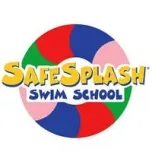About Swim School Franchises
Swim school franchises have surged in popularity due to their pivotal role in promoting water safety and teaching swimming as a life skill. These franchises offer structured swim lessons tailored to various age groups, from kids to adults, encompassing beginner techniques to advanced competitive training. The demand for swim education remains steady year-round, driven by parental concerns for water safety and the universal appeal of swimming as a recreational sport and fitness activity.
Investment Required
Investing in a swim school franchise typically requires a moderate to substantial initial investment, ranging from $150,000 to $500,000. This investment encompasses franchise fees, facility build-out or renovation, pool installation or upgrades, equipment procurement, initial marketing efforts, and operational costs. Franchisees should also budget for ongoing expenses such as payroll, utilities, insurance, and continuous training for instructors.
Requirements for Franchisees
Franchisees entering the swim school industry should possess a passion for swimming and water safety, along with strong organizational skills and a commitment to community service. Prior experience in education, sports coaching, or business management is advantageous but not always required, as franchisors typically provide comprehensive training in curriculum implementation, instructor recruitment and training, safety protocols, customer relations, and operational management.
Advantages of Swim School Franchises
Diverse Program Offerings: Swim school franchises cater to a wide range of abilities and interests, offering learn-to-swim programs, stroke refinement, competitive swim training, water safety courses, and specialty classes such as synchronized swimming or diving.
Water Safety Education: These franchises play a crucial role in promoting water safety skills, reducing drowning risks, and instilling confidence in swimmers of all ages.
Steady Demand: The consistent demand for swim lessons ensures stable enrollment throughout the year, with opportunities for seasonal camps, birthday parties, and community events to supplement regular programs.
Community Engagement: Swim schools become integral parts of their communities, providing not only recreational activities but also educational opportunities that promote physical fitness, social interaction, and overall well-being.
Brand Support: Franchisees benefit from established brand recognition, standardized teaching methods, and ongoing support from the franchisor, which helps maintain quality standards and attract a loyal customer base.
Example of a Successful Swim School Franchise
A standout example in the swim school franchise sector is "Big Blue Swim School," renowned for its innovative approach to swim education and extensive program offerings. Founded on a commitment to excellence by competitive swimmer Chris DeJong, Big Blue Swim School provides a structured curriculum designed to deliver measurable progress and build confidence in young swimmers. With a focus on customer experience, professional development for instructors, and strategic growth, Big Blue Swim School has expanded rapidly, earning accolades for its impact on water safety education and community engagement.



















